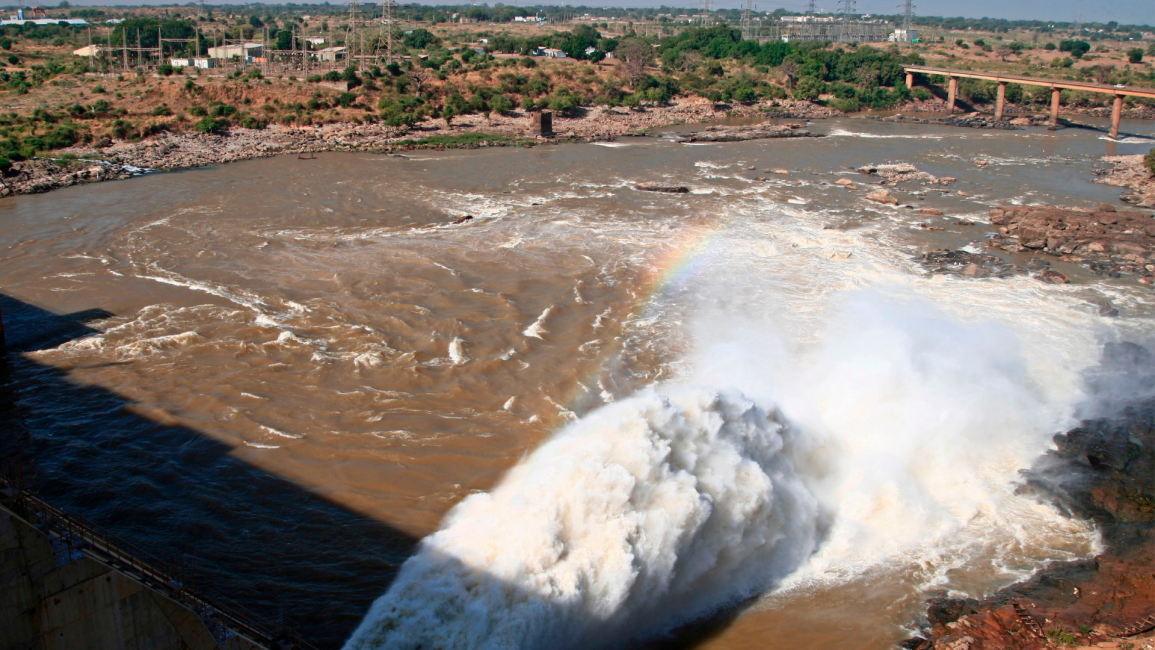Sudan warns filling of Ethiopian Nile dam 'threatens national security'
"If Ethiopia goes ahead with filling the renaissance dam next July, this will be a direct threat to our national security," Sudan's Water Minister Yasser Abbas told AFP in an interview in the capital Khartoum.
"It will also threaten the lives of half the population in central Sudan, as well as irrigation water for agricultural projects and power generation from (Sudan's) Roseires Dam."
Sudan, Egypt and Ethiopia have been locked in inconclusive talks for nearly a decade over the filling and operation of the Grand Ethiopian Renaissance Dam, after Addis Ababa broke ground on the project in 2011.
Ethiopia, which says it has already reached its first-year target for filling the dam's reservoir, has recently signalled it would proceed with the filling regardless of whether a deal was struck.
Khartoum hopes the dam will regulate annual flooding, but fears that its own dams, including the Roseires and Merowe, would be harmed if no agreement is reached.
"It will be impossible to operate the Roseires Dam without a binding agreement and daily exchange of information on the amount of water flowing from the renaissance dam," Abbas said.
Twitter Post
|
Without a deal, the minister added, the "Merowe Dam will also lose 30 percent of the electric energy it generates and drinking water stations will be affected".
Sudan has suggested mediation by the United Nations, the African Union, the European Union and the United States to help break the impasse.
The latest three-way talks were held last month in the presence of observers from the African Union and European Union, but failed to make headway.
Relations between Addis Ababa and Khartoum have been sour in recent weeks following tensions over the Al-Fashaqa border region, where Ethiopian farmers cultivate fertile land claimed by Sudan.
Renewed border clashes
On Thursday, new clashes erupted between the Sudanese army and Ethiopian forces in the disputed Al-Fashaqa Al-Soghra area on Sudan’s eastern border, in which a Sudanese solider was killed.
The local daily Al-Sudani cited eyewitness accounts in Birkat Noreen, situated in the disputed territory, claiming that Ethiopian forces attacked the Sudanese army, and that Sudanese troops responded with their own fire.
The Sudanese army took control of the Ethiopian settlement of Melkamo inside Sudanese borders following the clashes, military sources told the Sudan Tribune.
Eight troops were wounded in the clashes, in addition to the dead soldier.
In April 2020, Sudanese and Ethiopian military representatives held talks in Khartoum and agreed to coordinate border control and combat cross-border crime.
This followed the Sudanese army’s deployment to the eastern border for the first time in 25 years.
Last December, Sudanese and Ethiopian delegates also met in Khartoum to de-escalate tensions after Ethiopian forces reportedly ambushed Sudanese troops along the border, leaving four dead and more than 20 wounded.
Ethiopian gunmen have repeatedly attacked Sudanese farmers in the past, with the aim of looting and plundering their resources, according to Khartoum.
Sudan accuses the Ethiopian army of supporting what it describes as "militias," which Addis Ababa denies. Ethiopia says that the "militias" are in fact "outlaw groups."
The Nile, the world's longest river, is a lifeline supplying both water and electricity to the 10 countries it traverses.
Its main tributaries, the White and Blue Nile, converge in Khartoum before flowing north through Egypt to drain into the Mediterranean Sea.
Agencies contributed to this report.
Follow us on Facebook, Twitter and Instagram to stay connected



